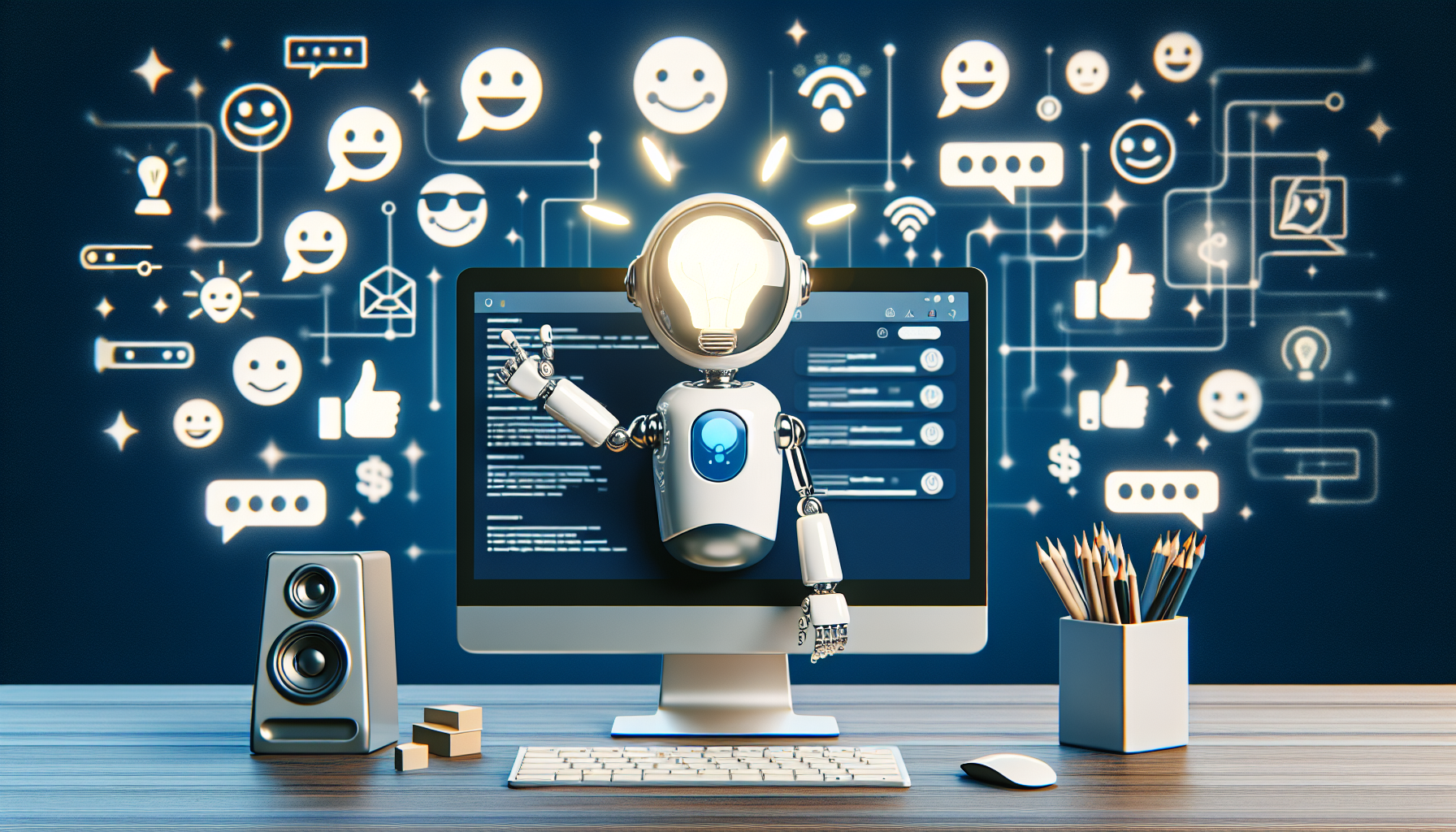Enhancing Customer Experience with Automated Responses: ChatGPT and CRM Tools
Understanding Automated Responses
Automated responses are pre-set replies designed to handle customer inquiries without direct human intervention. They can swiftly address common questions, guide users through processes, and enhance overall customer satisfaction. The use of AI technologies, such as OpenAI’s ChatGPT, has made these automated systems more sophisticated and context-aware, leading to improved engagement and customer experience.
The Role of ChatGPT in Customer Service
ChatGPT utilizes advanced natural language processing (NLP) to understand and respond intelligently to customer inquiries. This engine can simulate human-like conversations, allowing businesses to maintain a human touch while automating interactions. ChatGPT can:
-
Handle FAQs: By responding to frequently asked questions, companies can free up customer service representatives to focus on more complex issues. This minimizes response time, thereby increasing customer satisfaction.
-
Personalize Interactions: ChatGPT can analyze past interactions and customer data to provide personalized responses tailored to individual needs and preferences. Personalization is crucial in customer experience, as it builds rapport and trust.
-
24/7 Customer Service: Automated responses via ChatGPT can operate around the clock, providing immediate assistance to customers regardless of time or day. This is especially valuable for global businesses working across multiple time zones.
Key Features of CRM Tools Enhanced by AI
Customer Relationship Management (CRM) tools are designed to facilitate the management of customer interactions, data, and business processes. When integrated with AI systems like ChatGPT, these tools can significantly enhance customer experience. Key features include:
-
Unified Customer Data: Effective CRM systems consolidate customer information across various touchpoints. Integrating ChatGPT ensures that responses are informed by comprehensive data, resulting in well-informed, contextually relevant interactions.
-
Behavior Tracking: Advanced CRM tools can monitor customer behavior across digital platforms. By leveraging ChatGPT, companies can use this data to customize responses based on real-time behavior and trends, offering timely solutions that resonate with customers.
-
Lead Scoring and Qualification: AI-driven CRM can automatically score leads based on interaction patterns and potential conversion likelihood. ChatGPT can follow up with leads using tailored messages, thus improving the chances of conversion through engaging communications.
Benefits of Integrating ChatGPT with CRM Tools
Integrating ChatGPT with CRM tools provides numerous advantages that enhance customer experience:
-
Improved Response Time: Automated systems can reduce wait times for customers seeking assistance. Quick responses signal efficiency and attentiveness—the hallmarks of excellent customer service.
-
Cost Efficiency: By automating routine inquiries and support, businesses can reduce operational costs. This enables them to allocate resources to more critical areas of their operations, such as product development or human support for complex issues.
-
Enhanced Data Analytics: Integrating AI and CRM can lead to better data collection and analysis. Insights gathered from customer interactions can guide business strategy and decision-making, tailoring services to meet evolving customer needs.
-
Scalability: As businesses grow, so do customer inquiries. Automating responses with ChatGPT allows companies to scale their customer service efforts without a corresponding increase in staffing costs.
-
Consistent Messaging: Automated responses ensure that customers receive consistent information, reducing the possibility of misunderstandings or misinformation that can arise from human error.
Implementing ChatGPT in CRM Operations
To effectively implement ChatGPT in CRM tools, consider the following steps:
-
Identify Use Cases: Determine where automated responses would deliver the most value. Common areas include customer support, sales inquiries, appointment scheduling, and feedback collections.
-
Tailor Responses: Customize the AI’s response patterns to reflect the company’s voice and brand identity. Use customer data to create a knowledge base from which ChatGPT can draw accurate, relevant replies.
-
Train for Contextual Awareness: Training ChatGPT on specialized contexts related to your business can improve its accuracy and relevance. The more it learns, the smarter and more effective its responses become.
-
Monitor & Optimize: Continuous monitoring of ChatGPT interactions is crucial. Collect feedback from users to identify areas for improvement and optimize the system’s responses over time.
-
Integrate Human Oversight: While automation enhances efficiency, human oversight remains vital for handling complex inquiries or escalated situations. Establish protocols for when to involve human agents, ensuring a seamless transition from automation to personalized service.
Challenges in Implementing AI and CRM Integration
Despite the benefits, several challenges can arise when integrating ChatGPT with CRM tools:
-
Technical Constraints: Some businesses face technical hurdles when implementing AI systems. Lack of infrastructure or incompatible systems can pose obstacles.
-
Data Privacy Concerns: Handling customer data responsibly is crucial. Companies must ensure that their usage of AI complies with privacy regulations like GDPR and CCPA to avoid legal repercussions.
-
Changing Customer Expectations: As the technology evolves, so do customer expectations. Businesses must continually adapt their strategies to meet the rising demands for personalized and swift customer service.
Future Trends in Automated Customer Responses
The landscape of automated customer service is constantly evolving. Future trends may include:
-
Multimodal Interactions: As AI technology advances, businesses could adopt multimodal communication that facilitates voice, text, or image interactions, providing customers with more flexible contact options.
-
Hyper-Personalization: Advances in AI analytics could pave the way for even more refined personalization, where responses are dynamically tailored based on user behavior, preferences, and historical interactions in real-time.
-
Integration with IoT Devices: With the rise of the Internet of Things (IoT), expect to see AI systems that can interact with connected devices, providing contextual assistance based on real-time data collected from a user’s environment.
-
Emotional Intelligence: AI is likely to evolve further in understanding and responding to human emotions, enhancing customer interactions by recognizing tone and sentiment for a more empathetic approach to service.
Conclusion
Through the strategic integration of ChatGPT and CRM tools, businesses can transform their customer service experience. By leveraging AI-driven automation, companies can enhance responsiveness, personalize interactions, and maintain operational efficiency. As this technology continues to evolve, organizations that embrace these innovations will be better positioned to meet the ever-changing demands of their customers, thereby fostering loyalty and engagement in a competitive market landscape.


